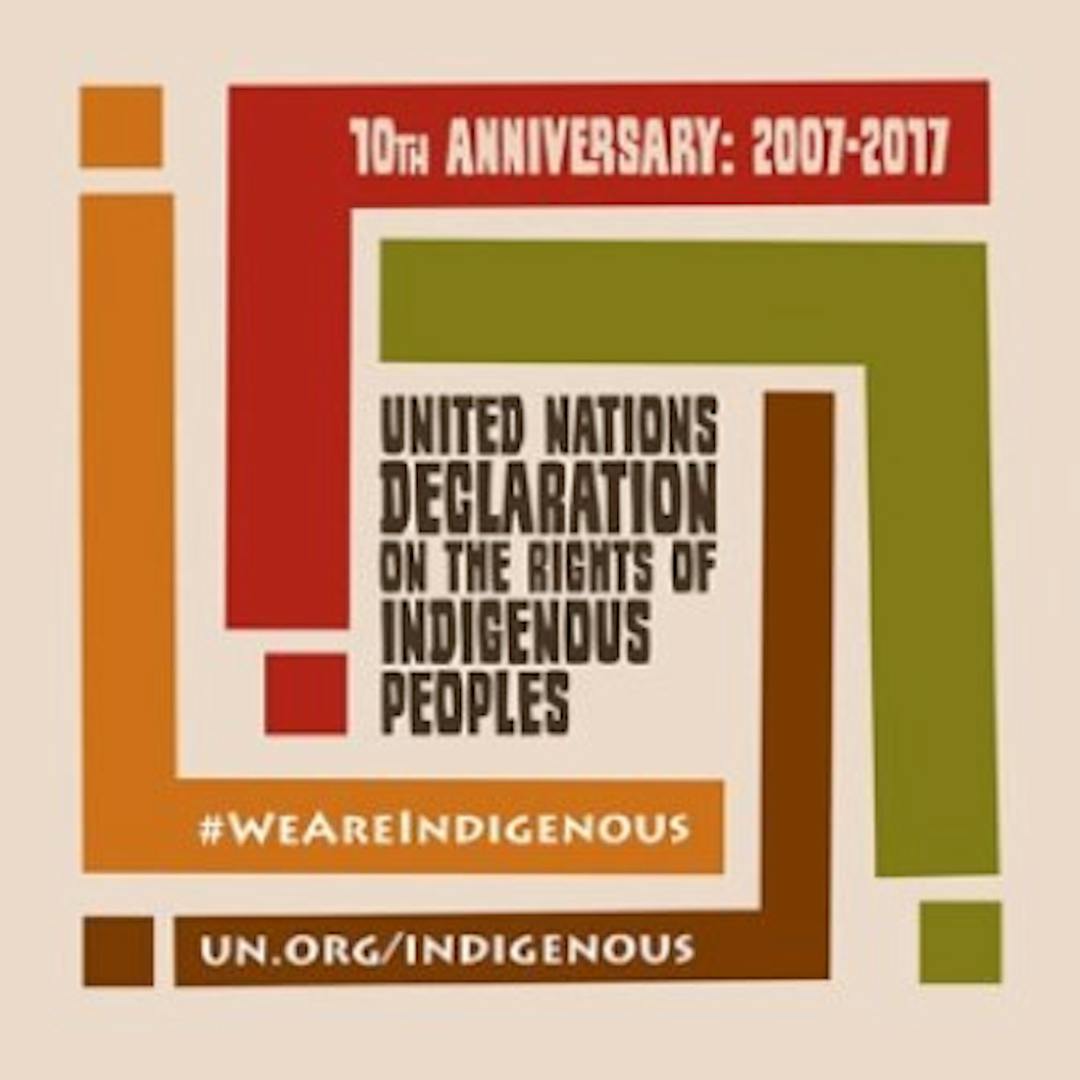10th Anniversary: UN Declaration on the Rights of Indigenous Peoples

The United Nations Declaration on the Rights of Indigenous Peoples (UNDRIP) was adopted by the General Assembly during its 61st session on at UN Headquarters in New York City on Thursday, 13 September 2007.
This declaration was support by a majority of 144 states in favour, 4 votes against (Australia, Canada, New Zealand and the United States) and 11 abstentions (Azerbaijan, Bangladesh, Bhutan, Burundi, Colombia, Georgia, Kenya, Nigeria, Russian Federation, Samoa and Ukraine). In May 2016 Canada officially removed its objector status to UNDRIP, almost a decade after it was adopted by the General Assembly.
The Declaration recognises a range of basic human rights and fundamental freedoms of Indigenous peoples. Among these are:
- the right to self-determination: Indigenous peoples have the right to make their own decisions on issues that concern them
- the right to cultural identity: Indigenous peoples are equal to all other peoples, but they also have the right to be different and culturally distinct
- the right to free, prior and informed consent: Indigenous peoples have the right to be consulted and make decisions on any matter that may affect them, having all the information, before anything happens, and without being pressured
- the right to be free from discrimination: Governments must ensure that Indigenous peoples and individuals are treated equally, regardless of sex, disability or religion
View the original International Declaration of the Rights of Indigenous Peoples.
Further resources are available in the documents section on this page.
Tell your story
- There are no stories to display. Why don't you share one?
